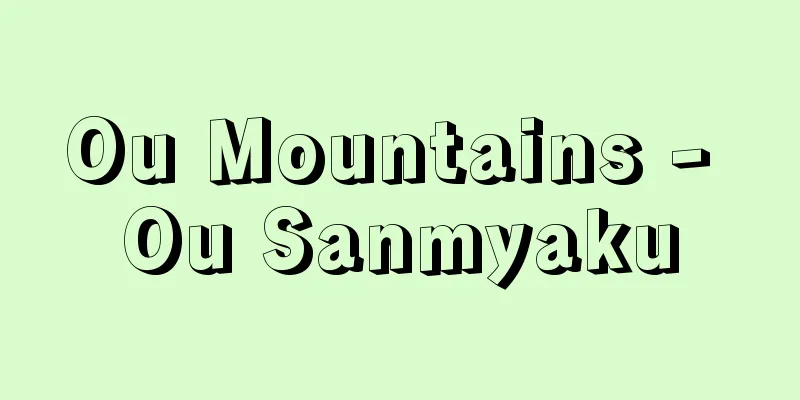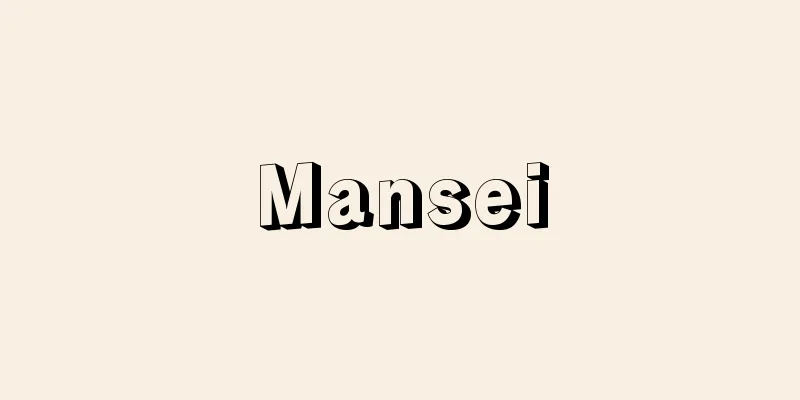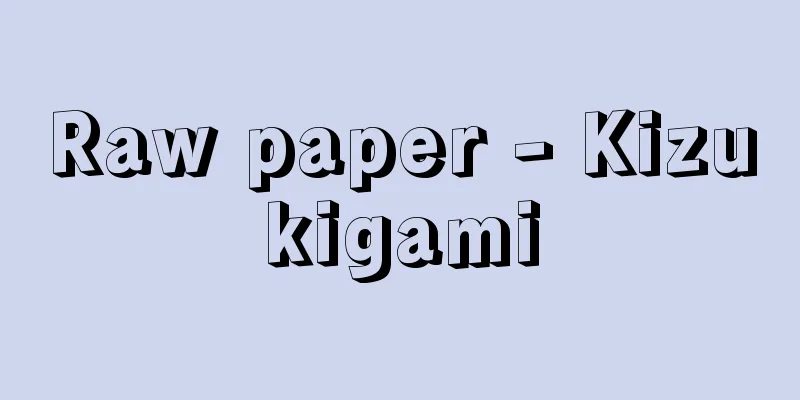Interstitial fauna (English spelling)

|
…Sandy beaches are home to large in-fauna such as bivalves and crabs, but they are fewer in number than in rocky reef areas. However, tiny crustaceans, polychaetes, nematodes and other interstitial fauna are significantly more numerous in the sand. Eelgrass beds, which are seaweeds with true roots, often form offshore from sandy beaches. *Some of the terminology that refers to "interstitial fauna" is listed below. Source | Heibonsha World Encyclopedia 2nd Edition | Information |
|
…砂浜域には二枚貝やカニ類など大型の埋在性動物in‐faunaがすむが,岩礁域と比べて少ない。しかし微小な甲殻類,多毛類,線虫類などの間隙(かんげき)性動物interstitial faunaは砂中に著しく多い。砂浜の沖合には本当の根をもつ海草類の生育しているアマモ(アジモ)場ができることが多い。… ※「interstitial fauna」について言及している用語解説の一部を掲載しています。 出典|株式会社平凡社世界大百科事典 第2版について | 情報 |
>>: Interstitial Cell-Stimulating Hormone
Recommend
Ricardo Flores Magón
1873‐1922 Mexican revolutionary journalist and ana...
Kaburaya
A type of arrow, with a hollow spherical piece of...
Afternoon Dress
Daytime formal attire for women, mainly for the af...
Yoshimochi Kino
?-919 A Chinese scholar and poet from the early t...
Bellmer, H.
...In the Canary Islands, Dominguez and others fo...
Alcoholism - Alcoholism
What is the disease? Alcoholism is a type of drug...
Gamagori Port - Gamagori Port
...Afterwards, the hot springs of Katahara, Nishi...
Yasu [town] - Yasu
A former town in Asakura County, central Fukuoka P...
pasteurization
...The process of sterilizing food by holding it ...
Sanatorium (English spelling)
A tuberculosis sanatorium. In the past, air rest t...
Amadamashi - Amadamashi
...Because the name is confusingly similar to tha...
Helotrephidae
…There are about 20 species of Asellota in Japan....
Inkyomen - Inkyomen
…Separate meals refer to separate hearths, or sep...
Cuevas
…In Spain, these types of dwellings are called ca...
Osaka Bank
A regional bank. Founded in 1950 as Osaka Real Est...









